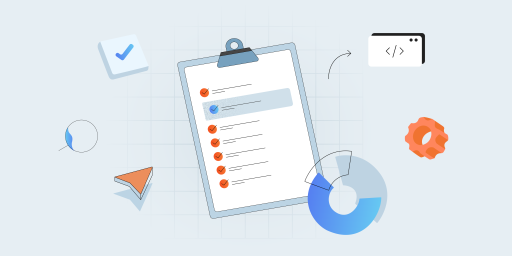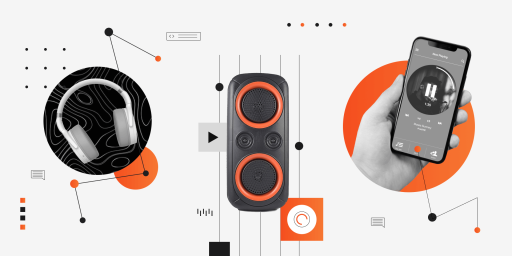Game launches don’t wait.
Neither do players — especially when bugs crash their devices or in-game purchases fail mid-session.
If you’re a product manager or QA lead in mobile gaming, you’re not just testing UI and performance. You’re testing monetization systems, network stability under load, store compliance, and player experience across 1,000+ devices and OS versions.
And with live-ops, there’s no “done” — every update is a chance to win or lose users.
That’s why choosing the right mobile game testing company matters.
Your game needs to work perfectly across thousands of device combinations, operating system versions, and network conditions. Internal teams can’t replicate the complexity. Emulators miss real-world performance issues. Manual testing doesn’t scale with rapid release cycles.
The best game testing companies:
- Catch bugs before players do — on real devices, not simulators;
- Validate UX, retention flows, and monetization systems;
- Adapt fast to new builds, new devices, and shifting store requirements;
- Work as an extension of your team, not just a service provider.
Here are the top game testing companies studios trust to make that happen.
Key Takeaways
Real device testing beats simulators every time. Emulators miss battery drain, hardware bugs, and network issues that kill mobile games. Top mobile game testing companies maintain current device labs, not just virtual environments.
Mobile-specific expertise prevents costly failures. The best game testing companies understand app store guidelines and device fragmentation challenges that cause rejections.
Balanced automation is crucial for mobile success. Pure automation misses gameplay feel. Pure manual testing can’t scale. Look for 60-70% automation with strategic manual testing for new features.
Network performance testing is non-negotiable. Top providers test across 3G, 4G, 5G transitions and poor connectivity that reflects actual player environments.
Platform compliance experience saves launch delays. Companies with high approval rates understand current iOS and Android guidelines and accessibility requirements.
Global testing networks catch issues internal teams miss. Different regions have unique conditions and usage patterns. The best companies maintain diverse testing capabilities across multiple markets.
Top 10 Mobile Game Testing Companies
Mobile game testing companies have evolved far beyond basic bug hunting. Today’s leading testing partners offer everything from AI-powered defect prediction to real-player usability testing with millions of participants. They understand that a game might run perfectly on the latest iPhone but crash on a two-year-old Samsung, or that network performance issues can destroy multiplayer experiences.
The best game testing companies bring distinct strengths to the table. Some excel at massive device compatibility testing with thousands of real devices, others specialize in emerging technologies like AR/VR and blockchain gaming, while others focus on player experience optimization that directly impacts retention and monetization.
This guide breaks down what makes each company unique, their specific strengths, and why game developers choose them.
Need battery drain analysis and memory leak detection?
Get mobile performance testing that optimizes player experience.
#1. TestFort
USA, UK, EU
TestFort stands as a premier QA and test automation company with over 24 years of mobile game testing expertise since 2001. Part of the QArea Group, they’ve built a team of 250+ specialists including 180+ ISTQB-certified QA engineers, delivering AI-enhanced Quality Engineering solutions specifically designed for mobile gaming challenges.
TestFort combines deep mobile gaming expertise with cutting-edge AI-enhanced testing methodologies that predict and prevent game-breaking issues before they reach players.
Key strengths
- 24 years of mobile game testing expertise with AI-enhanced predictive defect analysis;
- Extensive device labs with 250+ real devices for comprehensive compatibility testing;
- Full-cycle mobile game QA: functional, performance, security, multiplayer, and monetization testing;
- Using AI tools and optimization approach for real client cases;
- Advanced automation frameworks with self-healing capabilities for iOS and Android games;
- Cross-platform specialization covering native mobile, hybrid, and AR/VR gaming applications;
- Performance optimization, including battery drain analysis, memory leak detection, and network testing;
- Mobile-specific security testing for payment systems, player data protection, and anti-cheat validation.
TestFort’s engineering-led approach, ISO 27001 certification, and proven track record with major brands like Skype and a streaming service with millions of clients worldwide make them the go-to choice for studios requiring both innovation and enterprise-grade reliability. Multiple European Software Testing Awards (2021-2023) validate their industry leadership.
Case in point: TestFort’s 18-month compatibility testing project for game anti-piracy technology demonstrates their meticulous approach to gaming industry challenges.
Testing across 150+ Windows configurations with zero critical compatibility issues in production, they ensured flawless operation across diverse hardware and OS environments — exactly the thoroughness mobile games need across device fragmentation.
#2. iXie Gaming (Indium)
USA
iXie Gaming operates as the dedicated gaming division of Indium, an AI-driven digital engineering company with over 14 years of gaming expertise. With access to Indium’s 5000+ global engineers and maintaining an inventory of 2500+ testing devices, they offer comprehensive QA services across PC, mobile, console, and AR/VR platforms.
Key strengths
- Largest device inventory with 2500+ testing devices for comprehensive mobile compatibility;
- AI-driven digital engineering expertise through parent company Indium’s LIFTR.ai platform;
- Proven track record with major console publishers (Sony, Microsoft, Nintendo), extending to mobile;
- Automated game testing and Gen AI integration for enhanced testing efficiency.
iXie Gaming’s massive 2500+ device inventory, combined with parent company Indium’s AI expertise, provides unmatched scale and technological advancement for mobile game testing. Major publishers like Sony, Microsoft, and Nintendo trust them with over 500 delivered projects, making them ideal for AAA mobile games requiring cutting-edge testing capabilities.
#3. QAwerk
EU, Easters Europe
QAwerk maintains a focused team of 30+ senior QA engineers with over 10 years of specialized mobile game testing experience. They prioritize seamless gameplay across mobile, PC, and console platforms with particular expertise in device optimization and emerging technologies like AR/VR and AI testing.
Key strengths
- Team of 30+ senior QA engineers with specialized mobile gaming expertise;
- Quick turnaround and agile approach perfect for rapid mobile development cycles;
- Cutting-edge capabilities in AR/VR, AI testing, and LLM testing for next-gen mobile games;
- Device optimization expertise ensuring seamless performance across mobile platforms.
QAwerk’s high proportion of senior engineers enables rapid turnaround times and agile testing approaches ideally suited for mobile game development cycles. Recognition as a “Top Software Testing Company” by Clutch and their work on products used by 110 million people demonstrates consistent quality delivery for high-impact mobile games.
#4. PlaytestCloud
EU, UK
Founded in 2014, PlaytestCloud operates as a specialized Player Insights Platform with a unique focus on real-world usability testing and player feedback collection. They maintain a panel of 1.5 million players and deliver comprehensive insights within 48 hours using AI-powered analysis.
Key strengths
- Massive player panel of 1.5 million players for authentic real-world mobile game testing;
- AI-powered analysis delivering actionable player insights within 48 hours;
- Proven track record with 80% of top-grossing studios and 60% of $5B+ earning games;
- Player-driven usability testing that goes beyond traditional bug detection to optimize retention.
PlayTest Cloud’s player-driven approach transcends traditional QA by providing critical product validation and user experience optimization. With 80% of top-grossing studios as clients and having tested 60% of games earning over $5 billion, they’re essential for mobile developers prioritizing player retention and monetization optimization.
#5. TestMatick
USA
Founded in 2009, TestMatick employs 150+ experienced QA engineers providing comprehensive end-to-end game testing solutions across PC, mobile, and console platforms. Their extensive software testing lab features over 1000 devices for rigorous compatibility testing.
Key strengths
- Extensive software testing lab with 1000+ devices for comprehensive mobile compatibility testing;
- Fast and efficient testing approach with highly tailored services for rapid turnaround;
- Top 3 Clutch ranking worldwide with proven track record across 150+ clients;
- End-to-end game testing solutions covering functional, performance, and compliance testing.
Ranked among “Top 3 Best Software Testing Companies Worldwide by Clutch,” TestMatick’s fast and efficient approach, combined with their massive device lab, addresses mobile gaming’s biggest challenge: device fragmentation. Their proven track record of serving 150+ clients and reporting over 1 million bugs demonstrates deep experience in high-volume mobile game testing.
#6. Testronic
EU, UK
Operating since 1998 with over 25 years of game testing experience, Testronic offers comprehensive game testing services, including functional, compatibility, compliance, and user interface testing with particular expertise in platform-specific requirements.
Key strengths
- Over 25 years of game testing experience with deep institutional knowledge;
- Specialized expertise in platform-specific requirements for iOS App Store and Google Play;
- Meticulous quality assurance approach ensuring adherence to regulatory guidelines;
- Proven track record preventing app store rejections through compliance expertise.
Testonic’s meticulous approach to quality assurance and deep knowledge of digital storefront requirements (PlayStation, Xbox, iOS App Store) make them invaluable for mobile developers navigating complex submission processes. Their focus on “gameplay perfection” and regulatory compliance prevents costly app store rejections and launch delays.
#7. Pingle Studio
EU
With over 17 years in the industry and 400+ professionals, Pingle Studio specializes in testing mobile games, multiplayer titles, and AR/VR games with core focus on performance optimization and seamless gameplay delivery.
Key strengths
- Specialized expertise in testing mobile games, multiplayer titles, and AR/VR applications;
- Performance optimization focus for technically demanding mobile gaming scenarios;
- 17+ years of industry experience with 400+ professionals across major platforms;
- Proven track record with notable titles like Five Nights At Freddy’s and Risk of Rain 2.
Pingle Studio’s expertise in performance-critical mobile gaming scenarios like multiplayer and AR/VR applications addresses the unique technical challenges these games present. Having worked on notable titles including Five Nights At Freddy’s: Help Wanted and Risk of Rain 2, they understand the quality standards required for successful mobile game launches.
#8. SnoopGame
EU
SnoopGame employs over 200 QA experts across offices in Estonia, Poland, and Romania, providing specialized mobile game testing services including Network Game Performance Testing, Compliance Testing, and Playtesting for mobile, tablet, and console platforms.
Key strengths
- Specialized Network Game Performance Testing for multiplayer and live-service mobile games;
- Proven success with high-scale mobile games like SpongeBob: Krusty Cook-Off (10M+ downloads);
- Comprehensive mobile testing including VR/AR, HTML5, Blockchain, and Casino game testing;
- 200+ QA experts across multiple European locations for diverse testing scenarios.
Snoop Game’s specialized network game performance testing capability is crucial for multiplayer mobile games and live-service titles where network stability directly impacts user experience. Success stories like SpongeBob: Krusty Cook-Off with 10+ million downloads demonstrate their ability to ensure quality for high-scale mobile games.
#9. QATestLab
EU
Founded in 2005 with 22+ years of QA experience, QATestLab employs 250+ QA engineers and maintains a pool of 500+ real devices for comprehensive mobile testing across iOS, Android, and emerging platforms including Web 3.0 and blockchain gaming.
Key strengths
- Comprehensive device pool with 500+ real devices for authentic mobile testing scenarios;
- Forward-looking expertise in Web 3.0, AI testing, and blockchain gaming applications;
- Extensive experience with 3000+ completed projects across 22+ years of QA operations;
- Multiple R&D centers across Europe providing scalable testing capacity and expertise.
QATestLab’s extensive device pool combined with forward-looking capabilities in Web 3.0 and AI testing positions them well for mobile games exploring blockchain integration and emerging technologies. Having completed 3000+ projects across multiple R&D centers demonstrates scalable expertise for diverse mobile gaming requirements.
#10. BugRaptors
USA
BugRaptors specializes in comprehensive mobile, console, and AR/VR game testing with a team of 200+ ISTQB-certified testers. They offer future-ready testing services including AI & ML testing, blockchain testing, and mobile-specific automation frameworks.
Key strengths
- 200+ ISTQB-certified testers ensuring standardized mobile game testing expertise;
- Dual ISO certifications (9001:2018, 27001) for quality management and information security;
- AI-enhanced proprietary tools (RaptorGen, RaptorAssist) for efficient mobile testing automation;
- Future-ready testing capabilities including AI/ML, blockchain, and IoT testing for emerging mobile games.
BudRaptors’s dual ISO certifications (9001:2018 and 27001) provide strong security and quality assurance, particularly valuable for mobile games handling sensitive player data. The combination of ISTQB-certified expertise and AI-enhanced proprietary tools positions them as a reliable partner for security-conscious mobile game developers.
Need Compatibility Testing That Actually Works?
TestFort’s 18-month gaming industry project proves our approach:
- 150+ Windows configurations tested with zero critical compatibility issues in production
- 4 Windows OS versions validated (7/8/10/Server) across diverse hardware setups
- Ongoing quality assurance for continuous product updates and releases
This game anti-piracy technology now runs flawlessly across every target platform. No compatibility failures. No production issues. No revenue lost to technical problems.
Your mobile game faces similar compatibility challenges. Android fragmentation. iOS version differences. Hardware variations that break gameplay on specific devices.
We apply the same systematic testing approach to mobile games:
- Real device testing across target demographics
- Platform-specific compatibility validation
- Continuous testing support for live updates
Ready for mobile game testing that prevents compatibility issues before launch?
How to Choose a Mobile Game Testing Company That Won’t Let You Down
Most mobile game testing companies sound identical during sales calls. Everyone promises “comprehensive testing,” “extensive device coverage,” and “proven expertise.” The fundamental differences only become clear when you dig into specifics.
The key is asking the right questions and recognizing the warning signs before signing contracts. Here’s how to separate companies that deliver from those that just talk a good game.
#1. Verify their real device testing capabilities
Device fragmentation remains mobile gaming’s biggest technical challenge. Emulators often overlook hardware-specific issues, battery drain problems, and real-world performance bottlenecks that significantly impact user retention.
| ✅ | 🚩 |
| Current device inventory lists with specific models and OS versions, not vague claims about “extensive coverage”; Regular device refresh cycles — companies using 3-year-old devices won’t catch current compatibility issues; Device selection methodology that matches your target audience demographics and usage patterns; Physical device labs you can see via video tours, not just cloud-based simulator farms; Performance testing under constraints like low battery, limited storage, or background app pressure. | Reluctance to share specific device lists or lab details; Heavy reliance on emulators and simulators over real devices; Device inventories that don’t match current market distribution; Claims about “thousands of devices” without specifics about relevance to your target platforms. |
#2. Evaluate their mobile-specific performance testing
Mobile games face unique performance constraints that desktop games never encounter. Battery optimization, memory management, and network variability can make or break the user experience.
| ✅ | 🚩 |
| Battery drain analysis with specific metrics and optimization recommendations; Memory leak detection using mobile-specific profiling tools and techniques; Network condition testing across 3G, 4G, 5G, WiFi transitions, and poor connectivity scenarios; Thermal throttling validation for sustained performance during extended gaming sessions; Background app interference testing simulating real-world multitasking scenarios; Storage optimization verification for devices with limited available space. | Generic performance testing approaches borrowed from web or desktop applications; No mention of mobile-specific constraints like battery, memory, or thermal management; Testing only under ideal network conditions without simulating real-world connectivity issues; Inability to explain mobile performance optimization techniques and tools. |
#3. Check their platform compliance expertise
App store rejections delay launches, cost money, and damage momentum. The best companies understand platform guidelines intimately and prevent rejection cycles.
| ✅ | 🚩 |
| First-time approval rates for similar games with specific percentages and recent examples; Platform guideline expertise with detailed knowledge of current iOS and Android submission requirements; Accessibility compliance experience including WCAG guidelines and platform-specific accessibility features; Regional compliance knowledge for international markets with different regulatory requirements; App store optimization insight beyond just technical compliance to improve discoverability; Age rating and content guidelines expertise for different markets and demographics. | Vague promises about “handling submissions” without specific approval rate data; Lack of recent experience with current platform guidelines (guidelines change frequently); No mention of accessibility testing or international compliance requirements; Generic compliance claims without platform-specific expertise. |
#4. Assess their multiplayer and live-service testing capabilities
Modern mobile games increasingly depend on real-time multiplayer, social features, and live content updates. Network performance directly impacts player retention for these game types.
| ✅ | 🚩 |
| Server load testing with realistic player concurrency simulations and stress testing protocols; Latency optimization across different geographic regions and network conditions; Social feature validation including friend systems, chat, leaderboards, and community features; Live-ops testing experience for content updates, events, and monetization feature rollouts; Cross-platform compatibility for games supporting multiple devices and platforms simultaneously; Anti-cheat integration testing for competitive multiplayer games requiring fair play enforcement. | Single-player game focus without multiplayer or networking expertise; Generic load testing without mobile-specific network considerations; No experience with live-service game models or continuous content updates; Inability to test social features or community-driven game mechanics. |
#5. Understand their automation vs. manual testing balance
Mobile games need both automated regression testing for rapid iteration and human validation for gameplay feel and user experience. Pure automation misses usability issues; pure manual testing doesn’t scale with development velocity.
| ✅ | 🚩 |
| 60-70% automation for regression testing, compatibility checks, and performance validation; Strategic manual testing for new features, gameplay mechanics, and user experience validation; AI-enhanced testing capabilities that improve automation accuracy and reduce maintenance overhead; Continuous integration with your development pipeline for automated builds and rapid feedback; Flexible test suite management that adapts automation coverage based on release cycles and risk assessment; Hybrid approaches combining automated discovery with human verification for complex scenarios. | 100% automation claims (misses critical UX and gameplay issues); Purely manual testing approaches (can’t scale with modern development cycles); Outdated automation frameworks that require extensive maintenance; Inability to integrate with modern CI/CD pipelines and development workflows. |
#6. Evaluate their communication and project management structure
Poor communication kills more testing projects than technical issues. Time zone overlap helps, but structured processes and transparency matter more.
| ✅ | 🚩 |
| Dedicated project managers with mobile gaming experience and clear availability windows; Structured reporting systems with detailed bug tracking, priority classification, and resolution workflows; Real-time access to test results, dashboards, and progress metrics without waiting for weekly reports; Escalation procedures for critical issues that need immediate attention outside normal business hours; Cultural fit assessment through pilot projects or trial periods before committing to larger engagements; Knowledge transfer protocols ensuring continuity when team members change. | Unclear communication chains or multiple handoffs between sales and delivery teams; Weekly-only reporting without real-time visibility into testing progress; No established escalation procedures for urgent issues; Resistance to pilot projects or trial periods before larger commitments. |
Mobile game success demands flawless execution across hundreds of device combinations, network conditions, and player scenarios that internal teams simply cannot replicate at scale.
Key factors that separate top mobile game testing companies from generic QA providers: real device testing capabilities, mobile-specific performance optimization, platform compliance expertise, and proven experience with successful mobile game launches.
Work with mobile testers who understand game development cycles.
Let’s discuss your project requirements.
Wrapping Up
Device coverage, platform expertise, and speed. Most mobile game testing companies check these boxes on paper. The difference shows up in execution.
Real device labs with current inventory beat emulator testing every time. Battery drain, memory leaks, and hardware-specific bugs only surface on actual devices. Companies maintaining 500+ current devices aren’t just showing off — they’re covering the fragmentation that breaks mobile games.
Platform compliance expertise prevents app store rejections. iOS and Android guidelines change frequently. Companies with 90%+ first-time approval rates know these requirements inside out.
Testing speed matters for release cycles. Manual testing for new features. Automation for regression coverage. The best providers balance both without slowing down your development pipeline.
Next step: Test your chosen company with a smaller project first. Check their device access, communication style, and technical depth before committing to full launch testing.
The right testing partner scales with your development process and catches issues your internal team can’t replicate.
Frequently Asked Questions About Game Testing Companies
 Should I choose a company that specializes only in mobile testing?
Should I choose a company that specializes only in mobile testing?
Not necessarily. Mobile-specific expertise matters more than exclusivity. Companies like TestFort offer mobile testing alongside broader QA services, often providing better integration with your overall development process. Focus on their mobile track record and capabilities rather than whether they do only mobile.
 What’s the difference between device testing and simulator testing?
What’s the difference between device testing and simulator testing?
Real devices reveal performance issues, battery drain, hardware-specific bugs, and actual network behavior that simulators miss. Simulators are faster and cheaper but less accurate. The best providers use both: simulators for quick feedback during development, and real devices for final validation before launch.
 How do I know if a mobile testing company is actually good?
How do I know if a mobile testing company is actually good?
Check their client retention rates, ask for references from similar projects, and request examples of critical bugs they’ve caught that internal teams missed. Good providers offer pilot projects or proof-of-concept testing to demonstrate capabilities before larger commitments. Look for specific device lab inventories, not vague claims.
 Do I need separate iOS and Android testing expertise?
Do I need separate iOS and Android testing expertise?
Top mobile testing companies handle both platforms with the same team. Platform-specific expertise matters more than separate teams. Look for providers with current iOS and Android certifications, demonstrated experience with recent OS versions, and understanding of each platform’s unique requirements.
 What happens if the testing company finds critical bugs right before launch?
What happens if the testing company finds critical bugs right before launch?
Professional testing companies prioritize critical issues and provide detailed reproduction steps to accelerate fixes. The best providers offer expedited testing services for urgent fixes and can provide weekend/after-hours support during launch periods. This is why starting testing early in development cycles is crucial.
Jump to section
Hand over your project to the pros.
Let’s talk about how we can give your project the push it needs to succeed!






